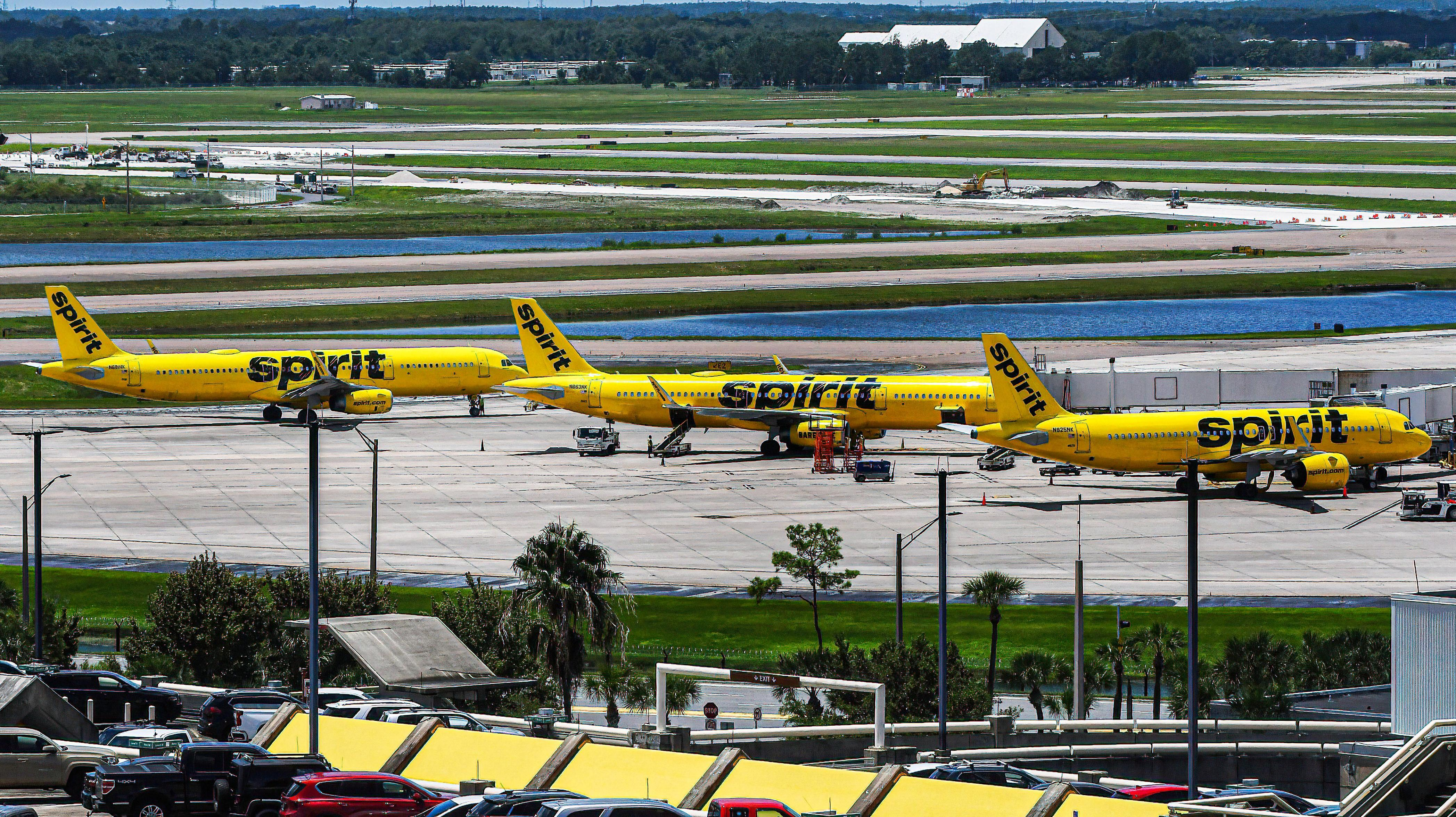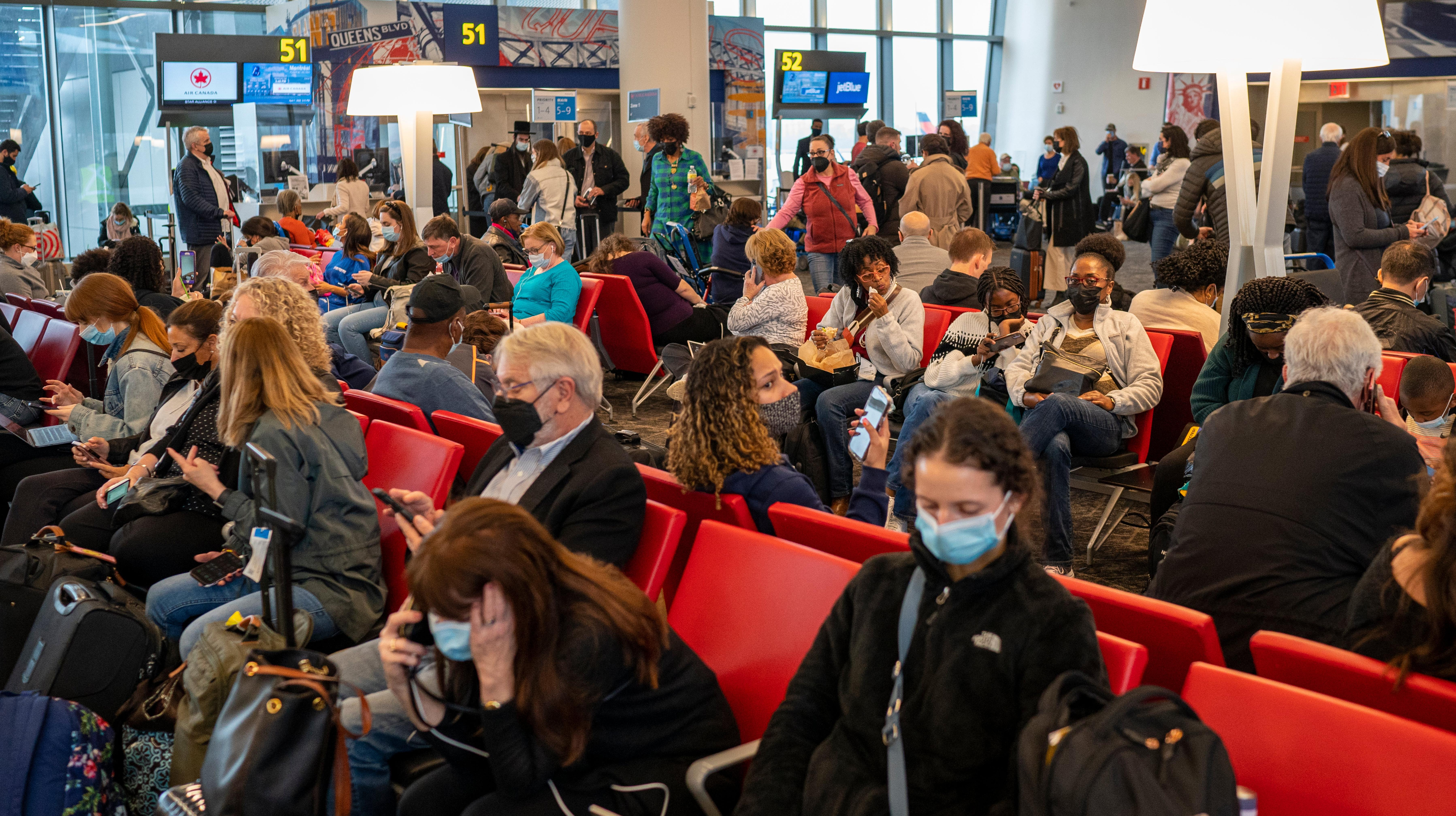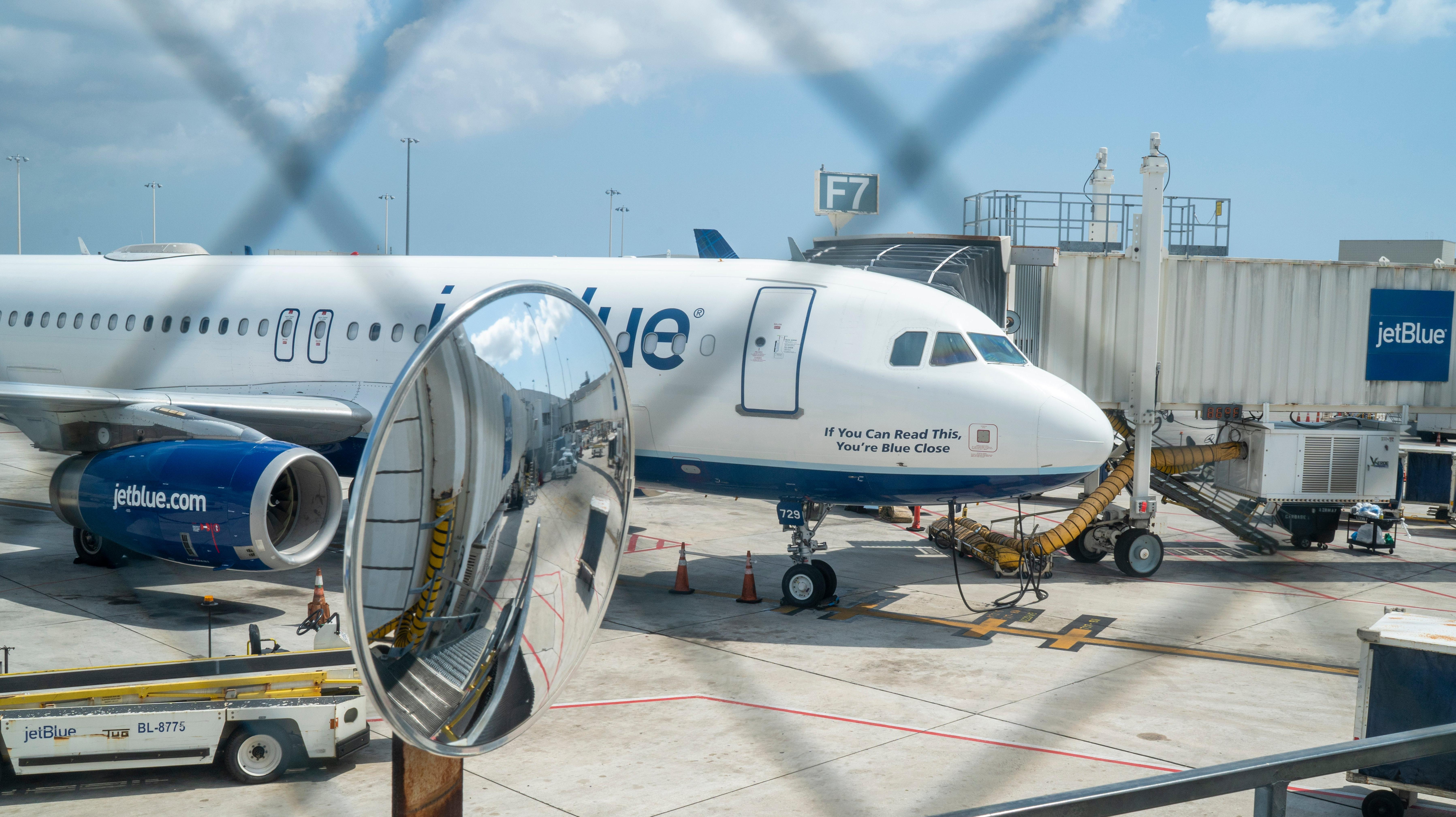Here's Why Flying Sucks Right Now
Pilot and airline worker shortages cause mass delays and flight cancellations as the industry tries to recover
Demand for air travel is increasing in the U.S. as pandemic lockdowns lift and travel restrictions ease, and airlines are having a difficult time keeping up. Many commercial airlines in the States are regularly reporting delays, and flight cancellations are becoming more commonplace. The overarching problem is while travel demand has returned, the airline pilots and workers needed to meet that demand, haven't. Just like with the truckers and the TSA, the U.S. is facing another major staff shortage, and it's a large part of the reason why flying sucks right now. Not only for travelers, but for pilots and airline workers, too.
When the pandemic essentially grounded the industry, airlines encouraged workers to either go on furlough, resign or retire early, per the Guardian. Of course, these worker losses are now hurting the airlines. And, really, who could've predicted that running skeleton crews at airports would bite these carriers in the ass?
The workers, that's who. What's worse, is the few workers remaining are taking the blame for these mass delays and cancellations. Here's just one example:
At JetBlue, flight delays and cancellations have been attributed to staff shortages. Transport Workers United, which represents about 5,000 flight attendants at JetBlue, criticized the airline's blaming of flight attendants for not accepting enough assignments, causing delays and cancellations.
The union argued JetBlue had responded to staff shortages and operational problems by increasing disciplinary actions toward workers, including increasing the amount of critical coverage days workers must be available to work or else accrue disciplinary attendance points that could lead to termination.
JetBlue staff have been stranded at airports, sleeping in hallways and on floors when flights are delayed or cancelled. Some are paying for lodging out of their own pocket, because the company can take hours to get them into hotel rooms.
But the problem isn't limited to a single airline. Travel worker unions claim it's a race to the bottom across the carriers, in terms of worker treatment. Spirit has had four operational meltdowns in less than one year due to under-staffing, leaving airline workers to deal with angry travelers. You would think that's not great for staff retention, which only makes the shortages worse.

Elsewhere, Delta and Alaska are facing protests and strikes from pilots, who blame the airlines for not addressing fatigue from over-scheduling. And more pilots are needed throughout most major airlines, as Reuters reports. JetBlue, American, Alaska Air, Delta, Southwest and United have all sounded the alarm on low pilot numbers.
United Airlines tells Reuters that carriers will need 13,000 pilots this year, but the number is expected to be higher next year. The U.S. can produce at most 7,000 pilots per year due to limited training capacity, so carriers are hiring foreign pilots. Immigration lawyers say visa applications are flooding in, and they're coming from pilots in countries where flight traffic hasn't recovered.
This is riling up domestic pilot unions, which say there are enough pilots in the U.S. to cover demand and they're being undermined by foreign pilots. In any case, hundreds of flights are being cancelled and planes are being grounded by airlines citing insufficient pilots.
The cancellations keep happening, and the understaffing persists even though it's not yet summer. Airlines and workers say they're bracing for this travel season, but I'd say it's probably best to travel by car if at all possible.

